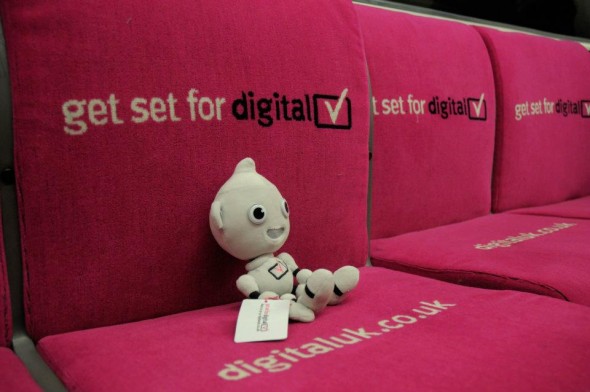
It’s the end of an era. London has had analogue TV signals broadcast through its airwaves since 1929, but tonight they are being fully replaced by digital 1s and 0s as the transition to digital becomes complete. Those five channels that were available over analogue have been finally phased out, and replaced with a multitude of digital channels (including those old five) including some HD channels – all with better signal. This is progress.
Many may have commented that the vast array of channels available on the now universal digital electronic programme guide (EPG) is just “a thinner spreading of the same old sh*t”, technologically it is something more. The signals are stronger, and with digital TV even a worse signal can give you a better picture and sound than traditional analogue television. And then there are the multitude of channels – there’s E4, More4, BBC3 and BBC4 – all of which commission and buy in shows that simply would not find a home on the mainstream five channels. There is no way The Killing would have ever been bought by the BBC for BBC1 or BBC2 – it is simply too much of a risk – but on BBC4 it found a home to be nurtured. Similarly – Skins could have only been made for E4 and its youth-audience. The mainstream five channels may continue to hold most the market share – but these new niches are where new shows can develop.
London is actually one of the last areas in the UK to make the switch, and it has all gone relatively smoothly over the last year or more as increasing areas of the country have gone digital only. Those who complained at the beginning that poor older people couldn’t afford a new set-top box – they were silenced by both the BBC stepping in to provide free boxes to some, and the price-drop of the boxes to under £10. At that price it is difficult to claim the upgrade is not worth it for everyone.
What is interesting about this switch over, however – is that since it was announced, more and more people are accessing TV content via their broadband connections through BBC iPlayer, 4OD, and others. We live in a digital world, and the move to digital terrestrial signal is needed now – but within the next decade the majority of television may be consumed via the internet anyway. We go from analogue to digital today, but we will be going from digital terrestrial to IPTV pretty soon.

